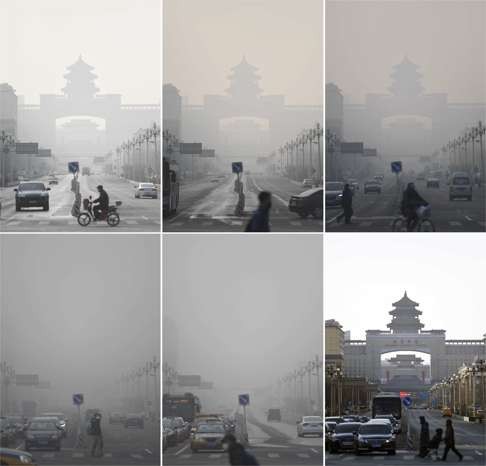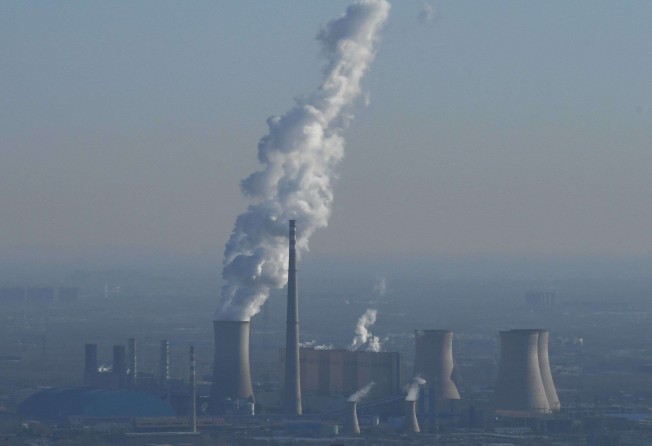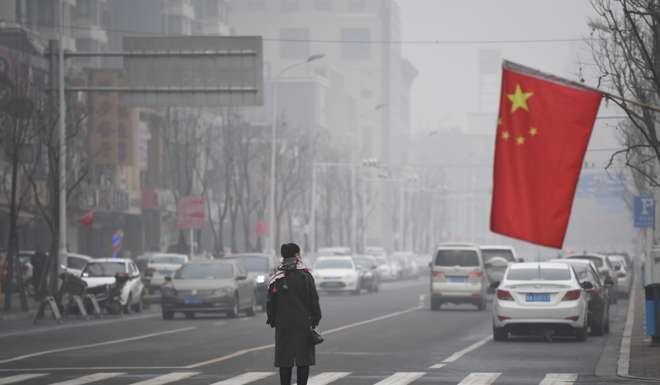
China passes landmark law to slap steep taxes on polluters
Levies could put some firms out of business but may not cover the real cost of air, soil and water contamination, analysts say

Costs are expected to escalate for mainland polluters with the passage on Sunday of a landmark environmental protection tax designed to reduce air, soil and water contamination.
The legislation, which comes into effect in January 2018, will tax factories, power plants and other pollution emitters for releasing contaminants such as sulphur dioxide, a key contributor to the smog that has choked much of the country in the last couple of weeks.
Analysts said the levies could be steep enough to push some dirty firms out of business, going some way to answering criticism that the central government has been half-hearted in tackling pollution.
Among the critics is Peter Navarro, US president-elect Donald Trump’s nominee for head of his new White House National Trade Council, who claims Beijing’s lax regulation of pollution has undermined trade fairness.
Under the law, polluters will have to pay up to 12 yuan (HK$13.40) for each 0.95kg of nitrogen oxide or sulphur dioxide they release.

Mines would have to pay 15 yuan for each tonne of tailings, which often contain heavy metals or other toxic debris that can severely contaminate water and soil.
A coal-fired power plant would be subject to the tax of 25 yuan for every tonne of ash it produces.
But cars, a major source of urban air pollutants, will be exempt from the tax. Nuclear power plants will also not have to pay for producing radioactive waste.
Carbon dioxide, the most important greenhouse gas, is not on the pollutant list.
Tsinghua University professor Shi Lei, who studies environmental and industrial policy, said the legislation could be a historic “turning point”.
Shi said the existing practice of letting local governments impose “fees”, instead of taxes, on polluters often meant a minor – if any – financial burden on dirty companies.
“This sends a clear message to the industry: you change, or you die,” said Shi, deputy director of the State Environmental Protection Key Laboratory of Eco-Industry at Tsinghua.
The passage of the law through the National People’s Congress comes as mainland courts move to widen the range of “environmental crimes”.
Yan Maokun, head of a research office at the Supreme People’s Court, said yesterday the changes were meant to make it easier to subject polluters to criminal punishment.
Pollution has become the chief source of “mass incidents”, or protests, on the mainland, and the public discontent with the government’s limited progress on the issue is growing.
Conditions have worsened to the point that the mainland is one of the most polluted places on the planet, with toxic air and water endangering the health of hundreds of millions of people.

Wang Jianfan, a senior Finance Ministry official involved in drafting the law, said the drafters tried hard not to break the back of industry.
“We have considered the issue of the burdens on businesses in the current economic situation,” People’s Daily quoted Wang as saying.
An earlier study by the environment ministry estimated the tax could bring in 50 billion yuan a year, or about three times the total from fees last year.
But there is a question mark over whether the law, which requires close coordination between the environment agency and the tax bureau, can be implemented strictly and, if so, whether it will make a big impact on pollution.
Yuan Ying, assistant manager at Greenpeace East Asia’s office in Beijing, said the law marked “significant progress in tackling pollution problems though taxation”, but the tax rates might fall well short of what was needed.
For instance, the new environment tax would add 0.004 yuan per kWh to the cost of coal-fired power, a fraction of the real environmental cost estimated at between 0.1 yuan and 0.3 yuan per kWh, Yuan said.